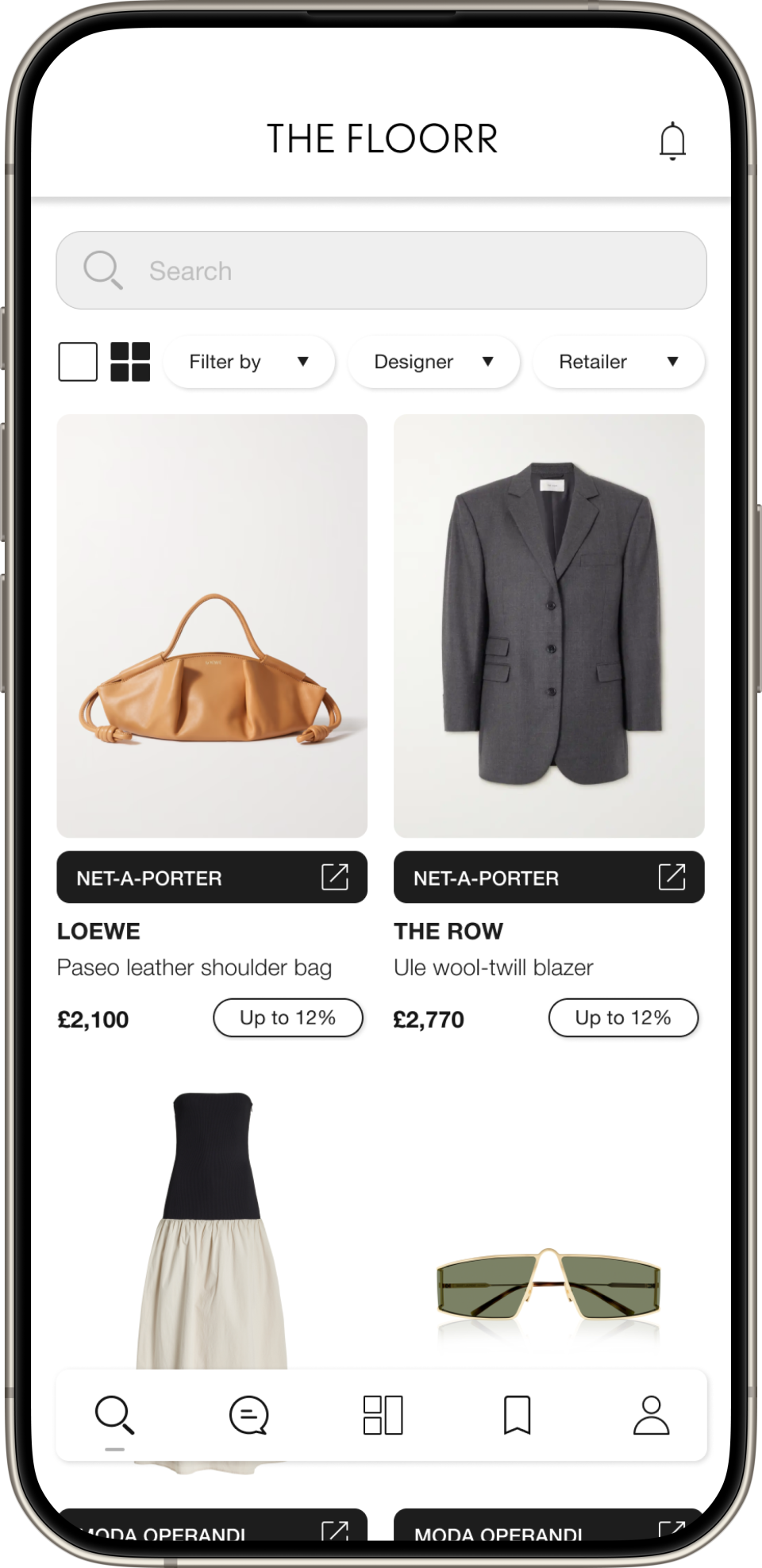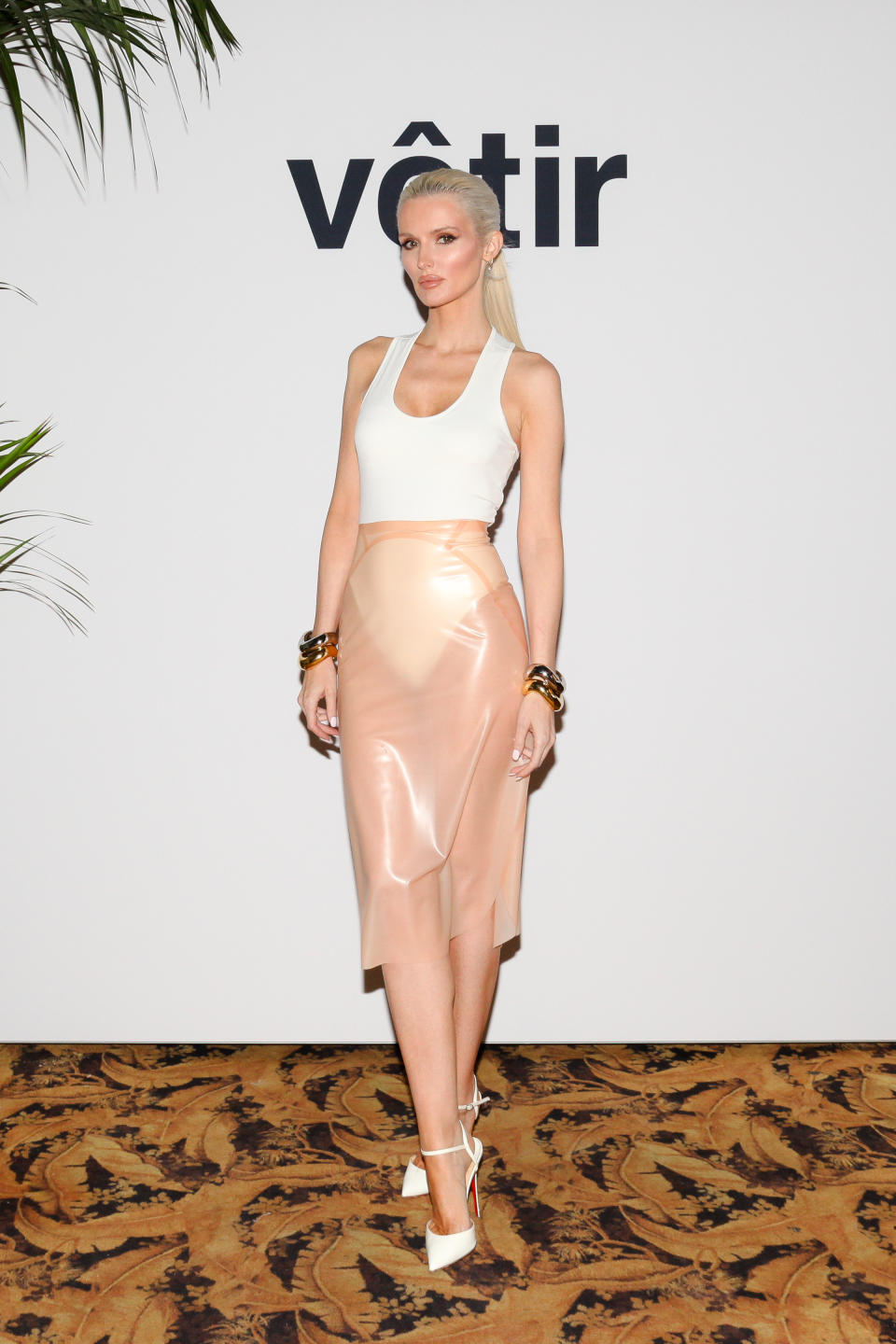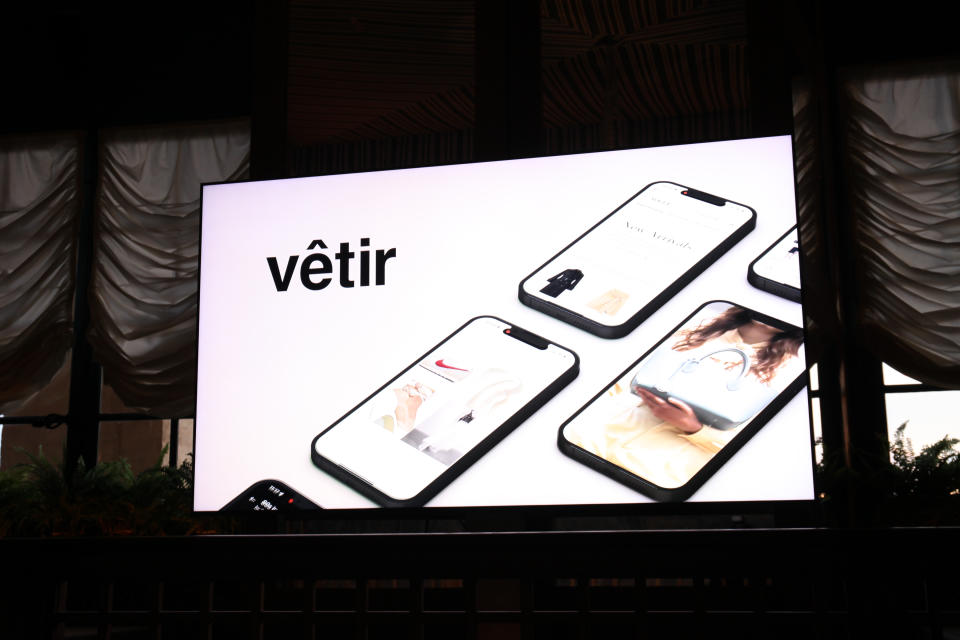In a challenging landscape for department stores and fashion e-commerce giants, two new apps aimed at making luxury personal shopping easier hosted buzz-building launch parties during Paris Fashion Week on Sunday.
First up, Proenza Schouler’s Jack McCollough and Lazaro Hernandez, Sarah Andelman, Alexis Mabille, Rickie de Sole, Tina Leung and others gathered to celebrate The Floorr.
More from WWD
The Floorr, co-founded by Net-a-porter veterinarians Lupe Puerta and investor Carmen Busquets, profiles itself as the first global engine for personal shopping entrepreneurs to better serve the industry and end customers.
“When big companies like Farfetch and Matches go bankrupt, there are a lot of customers left, and that’s a great opportunity…Luxury is all about loyal customers,” Busquets said.
“And there are a lot of personal shoppers left,” said Puerta, who was behind the Extremely important Person loyalty program at Net-a-porter, saying personal shoppers and stylists account for as much as 15 percent of luxury goods sales.
She created the software and platform to leverage that, onboarding retailers like Bergdorf Goodman, Neiman Marcus, Saks, Browns, SSense, Net-a-porter, Matches, Chloé and Ferragamo so that all their inventory one spot is shown. The app allows personal shoppers to have their own profiles and streamline their process, tapping into an extensive selection and interacting with customers through in-app chats, mood boards, looks and more.
The idea “is for personal shoppers to become fashion brokers,” Puerta said. “They want a place where they can make money anywhere in the world. We let them work in a very flexible way so they don’t have to spend all the time sourcing, they don’t have to create PDFs and send DMs all the time.”
The Floorr has about 200 personal shoppers on the platform who can each generate net revenue of $1 million to $4 million per year, she said, and who can have between 10 and 100 customers. The app has Hollywood stylists and purchasing experts from Hermès in its ranks.
“People look up to Hollywood stylists and want to work on dressing people for the red carpet, but even those who work with big celebrities understand that there is a lot of low hanging fruit for them, and we are that platform where they can manage everyone . otherwise they don’t have a big project,” she said.


De Floorr is an intermediary and does not provide inventory, sales or shipping; that’s up to the personal shoppers. But when there are sales, The Floorr takes a small commission (8 to 20 percent), which varies from brand to brand.
“A large number of personal shoppers now work freelance. And we don’t just look at them, we look at the entire workplace workforce, one of the largest workforces in the world. We want them to have a tool in their hands, even if they’re on the shop floor or online, so that as soon as they have a customer in front of them, they can come to our global inventory feed and close the sale and still get the Commission.”
Shoppers could certainly benefit from smoother customer service, or in some cases, any customer service at all.
“I remember many years ago … my father saying that people are going to pay a fortune for service, and service is going to be the most sought after thing,” Busquets said. “It’s starting to look like this.”
Meanwhile, Ashley Graham, Brooks Nader, Alejandra Rojas, Jonathan Simkhai and others gathered at Café Lapérouse to celebrate the launch of Vêtir, the AI-powered smart shopping app, digital closet and styling platform created by industry vet Kate Davidson Hudson.


After gaining experience working with VICs, or very important clients, at LuisaViaRoma, Davidson Hudson began developing the app two years ago to create a way for clients and their personal stylists to shop without the boundaries of geography or physical points of contact.
“We have a lot of VICs, especially in the US, shopping on various e-commerce platforms… and that model is being rethought before our eyes.… But there is also an emerging micro ecosystem of personal sourcers, Gab Waller and Front Row Live, for example to whom VICs turn. Then you have your favorite store employees. So Vêtir is really built around the idea of syncing everything in one interface,” she said.
Vêtir allows users to upload the contents of their closets to the app (Tom Brady’s four closets are currently being uploaded, Davidson Hudson said, noting that they have created software that silhouettes items to make them more attractive.) They can then invite favorite stylists and store associates to send personalized shopping recommendations and outfits, and even add them to a personal calendar or packing list.
“We have a lot of celebrity stylists like Erin Walsh who, when Anne Hathaway is at a press conference, she puts on an outfit at 9am, 12pm and 3pm and it shows up as a link in her calendar. You open the link and it opens directly to the outfit page in the app. And for some of our VICs who have multiple homes or have a house manager, that’s a really useful tool when it comes to packing lists. Or they can scroll through their different closets and everything is collected and categorized there. The huge interface is a giant data game, because the AI behind the scenes really learns your personal preferences and shopping habits,” she explains.


A custom algorithm is created for each user. “This means that if someone is chatting with their stylist on the app and they say, ‘I really don’t like my arms, please don’t send me anything shorter than a short sleeve,’ the AI will follow the query and will tell you never show anything that is sleeveless.”
The app is set up with three carousel feeds, one filled with human touch, a stylist adding suggestions and comments like “this new Gucci top would go great with the vintage Gucci vest in your closet for your trip this weekend.” The second carousel is an AI feed that pulls out arrivals from brand partners based on your preferences. The last feed is a general feed for newcomers.
Vêtir also invites the best personal sources to curate drops, for example for the must-have Alaïa flats.
The app works on a marketplace model, with various retail partners connecting to the backend. Net-a-porter is the exclusive multi-brand partner for the first year, and mono-brands Altuzarra, Gabriela Hearst and others are linked through their Shopify accounts. There is a universal shopping cart “that was very important for us to build. Instead of sending you to another site, we wanted to control the experience. And it collects all your order information in one place and uploads it to your closet with meta tags,” she said.
Vêtir also licenses its technology suite to e-tailers to offer it to personal shoppers, who can access analytics in real time and use the interface to serve one or all of their customers at once. And that data belongs to the e-tailer, even if the personal shopper leaves.
The app is free to users but currently shuttered, and stylists must have a book of at least $2 million to be eligible to join the platform. There is currently a waiting list of 79 stylists to join, she said, likening the app to “Uber for stylists.”
Vêtir is also beta testing a proprietary shoppable video technology that will allow stylists to create video in their studio or store with a time stamp and a built-in link so a customer can purchase in-app. “It’s a way for them to scale their business beyond their time zone and physical limitations,” she said.
The goal is to sign all the top luxury, prestige and jewelry brands and one day open the app to high-net-worth clients who don’t work with personal stylists.
This is the next generation of the box styling model, Davidson Hudson pointed out. “We don’t deal with inventory, which is the problem with a lot of what we’re seeing in the market right now: the returns issues with Farfetch and YNAP and Matches. Now that the mono brands are becoming so strong, we are there to serve them and connect the dots with their VICs.”
The best of WWD